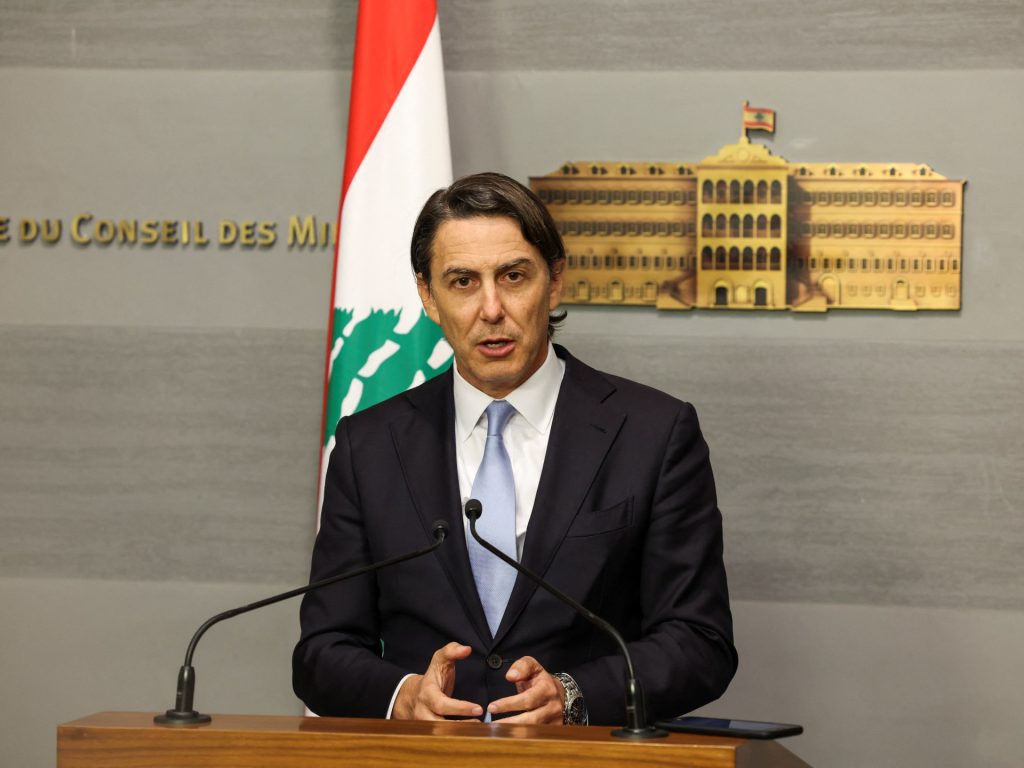The Israeli military will completely withdraw from southern Lebanon, US envoy Amos Hochstein said, despite recent reports that Israel plans to maintain a permanent presence in the country.
Hochstein’s statement on Monday came as Israel withdrew its troops from Naqoura, in the western part of the border, and the Lebanese army was stationed in the area.
“The Israeli military today began withdrawing from Naqoura, most of the western sector, and back into Israel south of the Blue Line,” Hochstein told reporters in Beirut, referring to the unofficial border between the two countries.
“These withdrawals will continue until all Israeli forces are fully withdrawn from Lebanon.”
However, the US official did not provide a timetable for the Israeli withdrawal.
A ceasefire agreement between Israel and Hezbollah in November stipulates that Israeli forces must leave Lebanon within 60 days, i.e. by January 26th.
However, media reports from Israel indicate that the Israeli military has no plans to meet the deadline.
Lebanese Prime Minister Najib Mikati said in a statement after meeting with Hochstein on Monday that delaying Israel’s withdrawal from Lebanon would be “strongly opposed.”
Last week, the United Nations reiterated its call for a “timely” Israeli withdrawal from Lebanon.
The Israeli military is carrying out almost daily attacks in Lebanon in violation of the ceasefire, including airstrikes across the country, ground advances and the destruction of homes in areas it controls.
Israel argues that it is enforcing the agreement, which requires Hezbollah to withdraw its troops north of the Litani River, about 30 km (19 miles) from the Israeli border.
Despite Israeli attacks, Hezbollah has held back fire since the deal came into effect, with the exception of a single “warning attack” against an Israeli base last month.
Hezbollah officials said they would give the Lebanese government space to address Israeli violations through diplomatic channels and the U.S.-led “mechanism” monitoring the deal.
But Hezbollah chief Naim Qassem warned Saturday that the group’s patience could run out before or after the 60-day deadline. “If we decide to do something, you will see it directly,” Qassem said in a televised address.
Hezbollah began attacking Israeli military positions after the outbreak of the 15-month war against Gaza. The campaign was reportedly aimed at pressuring Israel to end its offensive against the besieged enclave.
After nearly a year of mild cross-border hostilities, Israel launched an all-out war in Lebanon, killing thousands of people and destroying large parts of the country.
During its attack, Israel dealt heavy blows to Hezbollah and assassinated several of its top military and political officials, including its powerful leader Hassan Nasrallah.
The Israeli army also claimed it had destroyed most of the group’s missile arsenal.
However, Hezbollah claimed victory after the war, saying it stopped Israeli ground advances and inflicted heavy damage on invading soldiers. The Lebanese group continued to fire rockets and drones at Israel throughout the conflict.
On Sunday, Israeli Defense Minister Israel Katz warned that the country would be “forced to act” if Hezbollah did not withdraw from the border.
But Hochstein has suggested that the fragile ceasefire is holding. “This process is not smooth, but it is successful,” he said Monday.
The Lebanese army had already confirmed its deployment to Naqoura on Monday, but the community urged residents not to return to the town until authorities gave the go-ahead after opening streets and clearing unexploded ordnance.


